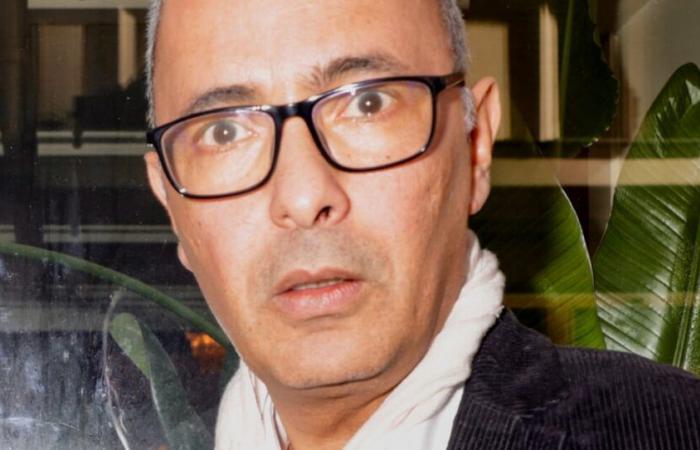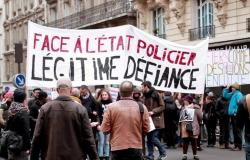
He shone in the media for winning the 2024 Goncourt Prize with his book Houris. However, now is the time for scandal. The Franco-Algerian writer Kamel Daoud and his psychiatrist wife are accused of having used the story of a patient to write this acclaimed novel. They are at the heart of a controversy which is gaining momentum in Algeria with the announcement on Wednesday November 20, 2024 of the filing of two complaints against them according to the AFP.
“As soon as the book was published, two complaints against Kamel Daoud and his wife Aicha Dehdouh, the psychiatrist who treated the victim“, Saâda Arbane, were filed in Oran (west), place of residence of Kamel Daoud and his wife in Algeria, lawyer Fatima Benbraham told AFP. Saâda Arbane, survivor of a massacre during Algeria’s civil war in the 1990saccuses the writer and his wife of having revealed his story without his consent.
“The first complaint was filed on behalf of the National Organization of Victims of Terrorism” et “the second in the name of the victim“, specified Me Benbraham, ensuring that their filing dates back to August, “a few days after the publication of the book“, well before the award of the Prix Goncourt to the novel at the beginning of November.”We did not want to talk about it so that it would not be said that we wanted to disrupt the author’s nomination for the prize” she said.
According to this lawyer known in Algeria, the complaints relate to “the violation of medical confidentialitysince the doctor (Mr. Daoud’s wife, editor’s note) handed over the entire file of his patient to her husband, as well as on the defamation of victims of terrorism and the violation of the law on national reconciliation”, which prohibits any publication on the “black decade” civil war between 1992 and 2002.
Did Kamel Daoud and his wife violate the privacy of a victim?
Last Friday, Saâda Arbane appeared on the One TV television channel, saying that the story of the novel Houris is his. This survivor of an attempted throat slitting by armed Islamists said he recognized elements of his life: “his cannula (for breathing and speaking, editor’s note), his scars, his tattoos, his hair salon“.
Saâda Arbane cited other very personal information such as her relationship with her mother or her desire to have an abortion. She says she confided them, during therapy in 2015, to her psychiatrist who has since married Kamel Daoud, and denounces “a violation of (one’s) privacy“.
According to her, Kamel Daoud’s wife invited him three years ago for coffee at her house and, on this occasion, the writer allegedly asked her if it was possible to tell her story in a novel, which she says she refused.
The defense of Kamel Daoud
Kamel Daoud did not respond to these accusations, but his French publisher Gallimard denounced on Monday the “violent defamatory campaigns orchestrated (against the writer) by certain media close to a regime whose nature is well knowne”.
“And Houris est inspired by tragic events that occurred in Algeria during the civil war of the 1990s, its plot, its characters and its heroine are purely fictional“, affirmed Gallimard.
The novel, which takes place in Oran, tells the story of a young woman who lost the use of speech during a massacre on December 31, 1999, during the civil war which left 200,000 dead, according to official figures.
Kamel Daoud and Algeria, a complex relationship
If in France, Kamel Daoud is praised, in Algeria, the writer who is also a columnist for Le Point is seen as someone who betrayed the Palestinian cause, sacred to Algerians, in order to make a career in France. Many consider that the Goncourt was a political reward, not a literary one..
With this new controversy, the gap between Kamel Daoud and many Algerians active on social networks has widened. “I remind you that in this affair, the first victim of terrorism (and the one who should have our solidarity and support) is Saâda, the only survivor of a massacre, left for dead.writes Abdellah Benadouda, an activist, on Facebook.
The feminist Hanane Trinel, for her part, deplored an affair which “risks breaking the already fragile trust between women and health professionals“. “There has been so much progress in terms of awareness of the need for psychological follow-up for women victims of violence in Algeria, this abuse risks harming this progress” she wrote on Facebook.





